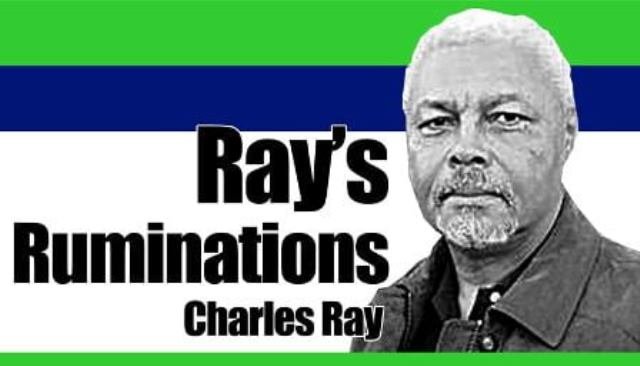
Growing up, I was taught that it was the height of uncivility to use profanity in polite company. Then, I spent 20 years in the army where a certain level of profanity seemed to almost be a part of the daily vocabulary. After leaving the army I became a diplomat and once again, there was that ‘gentle beings do not use profanity in public’ prohibition again.
I’d like to say I was a proper diplomat, but I wasn’t. While I think people who are constantly, as my grandmother would say, ‘cussing up a blue streak,’ are people who have nothing worthwhile to say, the occasional strategically employed bit of salty language can be useful. On more than one occasion I had people remark that I ‘didn’t talk like a diplomat.” I have no idea what that means, but obviously it didn’t hurt my ability to get the job done.
Since leaving government service and getting into fulltime writing and public speaking, I have found that the occasional use of mild expletives can get a message across to an audience very effectively. I do not curse like a sailor by any means, but now and then I’ll throw in a ‘bad’ word to wake an audience up.
Being a western author has helped me in that regard. People who grew up watching the old American (and Italian) westerns on TV and at the movies might think the American cowboys didn’t curse. Then again, those who watched the HBO series ‘Deadwood’ might think that they were all a bunch of potty mouths. Neither image is correct.
The people who settled the American West were no saints, at least a lot of them weren’t. They faced innumerable challenges and dangers. To think that they could do that and never utter the occasional expletive is beyond naïve. What they did, though, was ‘cuss’ creatively, just as they came up with colorful language for everything else. The nice thing about ‘cowboy cussin’ is that you can do it in public, in polite company, or even around your prissy maiden aunt and most people will think you sound cute, quaint, or maybe a little loopy, but they’ll never know you’re cursing.
Here are a few examples.
“Dang it, why’d you do that?” Used instead of the less desirable damn.
“Dagnabit.” Same as above.
“You look like you been rode hard and put up wet.” Basically calling someone ugly.
“That’s a load of bushwa.” Bushwa is a cowboy euphemism for cow or buffalo manure. The meaning of this sentence, therefore, is clear, right?
“That fellow is nothing but buzzard bait.” Not really profanity, but a way of calling someone worthless.
“You’re about as useful as a pile of buffalo chips.” See bushwa above.
“I’ll be doggone!” Dog was used instead of God by those who wanted to express themselves colorfully without violating the preacher’s admonition about taking the Lord’s name in vain, so doggone, was a euphemism for G-dDanm.
“You’ve gone haywire!” A semi-polite way of calling someone crazy. Again, not really profanity, but it fell into the category of things I was taught not to say to others. Nowadays it’s again considered extremely rude to call someone crazy, even when they are.
I could go on and on, but I hope I’ve made my point. Learning the idioms of the American western frontier empowers one to say the most outrageous things with complete impunity—unless you’re talking to an audience of history buffs who have also studied the period. So, all you greenhorns and tenderfeet, stop going haywire over tryin’ to clean up your chin waggin’, ‘n learn to parley like a goldarned cowboy. Kudos to the first reader to correctly translate the foregoing statement.
Happy trails, partners. – NWI




